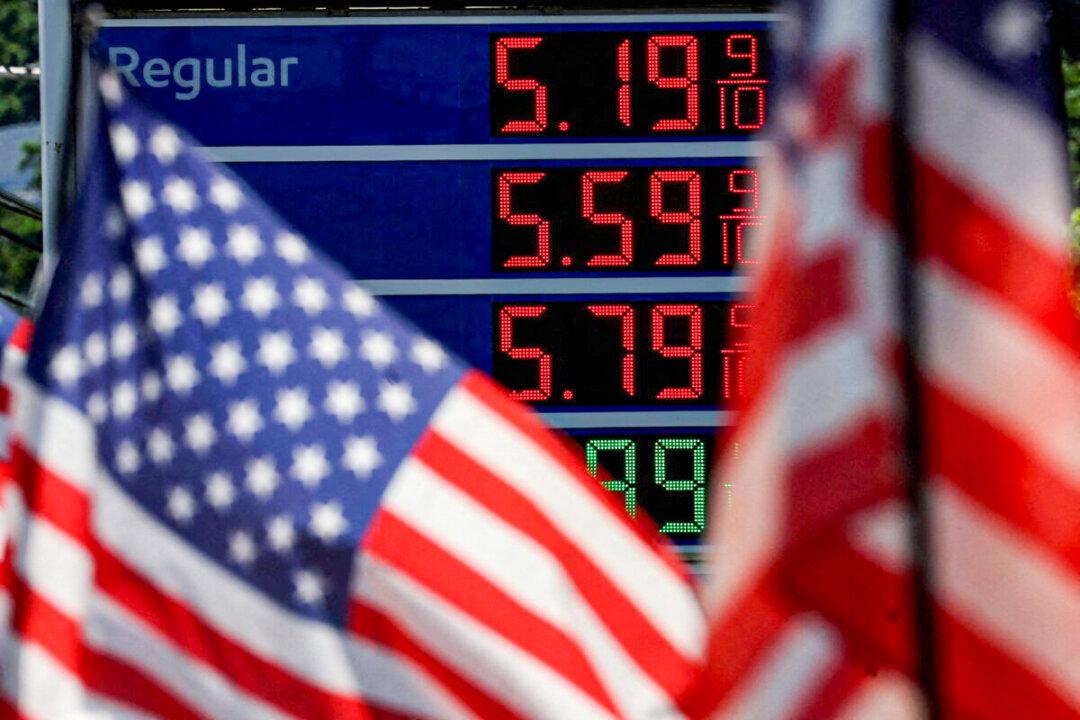Gasoline prices in the United States fell below $4.90 on Monday as fears of an upcoming recession mount.
The national average for a gallon of gasoline is $4.897 as of June 27, according to AAA, up from $3.095 this time a year ago but down from the historic highs of over $5 a gallon seen earlier this month.




